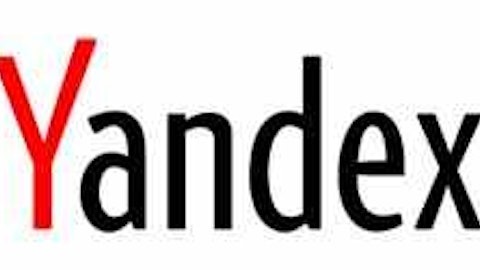Discover Financial Services (NYSE:DFS) is known for their credit cards, top notch customer service, and insanely high cash back bonuses. As a college student with no credit, the experience of denial from Visa, Mastercard, and American Express left me with the feeling of being unwanted and lost. However, Discover came to the rescue and not only was I approved for a credit card, but my limits were raised quickly. I was able to build credit within a year to open other lines of credit. I fell in love with this company and will be a cardholder for life. Discover is not only great to their cardholders, but they have been incredibly strong for their shareholders. This stock has been performing well over the last 4 years and could continue this movement. Let’s take a deeper look into Discover Financial Services (NYSE:DFS).
This company operates in two segments–direct banking and payment solutions. Direct banking includes Discover Card, Discover Bank, and Discover Home Loans. Discover Card is a credit card offered to both individuals and businesses. There are cards that generate maximum cash back, earn bonus miles, and some that are designed for students or people new to credit. The Discover Card was the first card to introduce cash back rewards, as well as offering no annual fees and 24/7 customer service.
The Discover Bank offers a full range of banking products such as online savings accounts, certificates of deposit, money market accounts, and student loans. Discover Home Loans are the newest addition, and offer competitive rates along with dedicated customer service. Discover Payment Solutions includes the Discover Network, PULSE, and the Diners Club International. The Discover Network is a secure payments network for credit cards, debit cards, and prepaid cards. PULSE is one of the largest ATM and debit networks in the nation, with over 900,000 locations. The Diners Club International is a direct banking and payment services company. This card is accepted in over 185 countries, millions of merchant locations, and over 845,000 ATMs worldwide. The expansion of these segments are crucial for Discover to continue growing.
PayPal
Discover made a great move by teaming up with eBay Inc (NASDAQ:EBAY)‘s Paypal to offer consumers another payment method in stores. PayPal is the global leader in online payments and has set up deals with several national merchants, including Home Depot, Abercrombie & Fitch, Dollar General, and Jos. A Bank. PayPal currently has over 123 million users in 190 markets who use 25 currencies, and the payment processor has been growing like a weed–it added over 5 million users in the 4th quarter of 2012. PayPal’s revenues made up 39% of eBay’s total for the quarter and 53% of eBay’s total international revenue. PayPal has made up over 50% of eBay’s total international revenue for 5 quarters straight, and this trend is sure to continue. Buying PayPal was the greatest move eBay ever made.
This process of using PayPal in stores is very simple for consumers. At the register, customers will be able to access their PayPal accounts by entering their phone number and personal identification number. This will take funds directly from their PayPal accounts. PayPal is also issuing cards now that can be swiped at the register and not require a PIN. The cards are much easier and have more potential to be picked up by consumers. This is a great deal for both Discover and PayPal, and I am sure Visa, Mastercard, and American Express want in on it.
Google Inc (NASDAQ:GOOG) Wallet
Discover made another great deal when it entered into a partnership with Google Inc (NASDAQ:GOOG) to allow users to access their cards through Google Wallet. Google Wallet lets users save all of their credit and debit card information on Google’s highly secure servers. They can then access their cards and pay in-store using the Google Wallet app. Users just have to set their Discover Card as their preferred method of payment. Google uses Google Wallet much differently than eBay uses PayPal. Google Wallet is offered at no cost to issuers because Google is focused on collecting information about the transaction more than making a percentage. This transactional information is then used to create targeted ads for consumers. This direct approach to obtaining information makes Google even more desirable for advertisers than the company already was.






